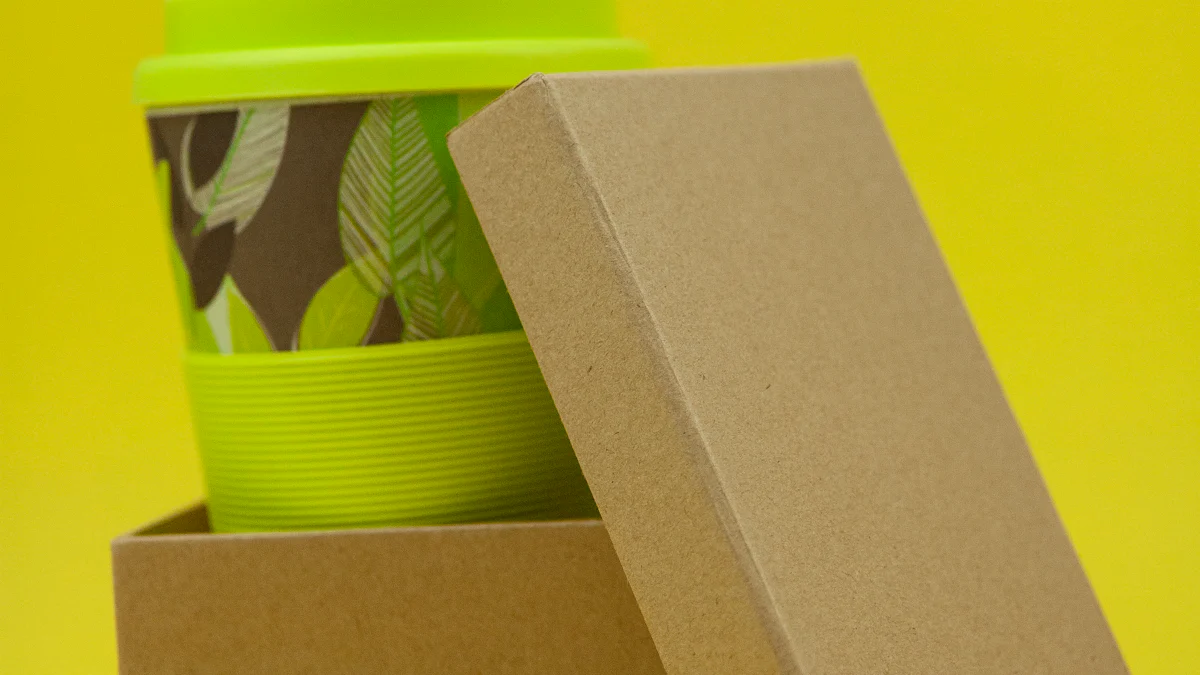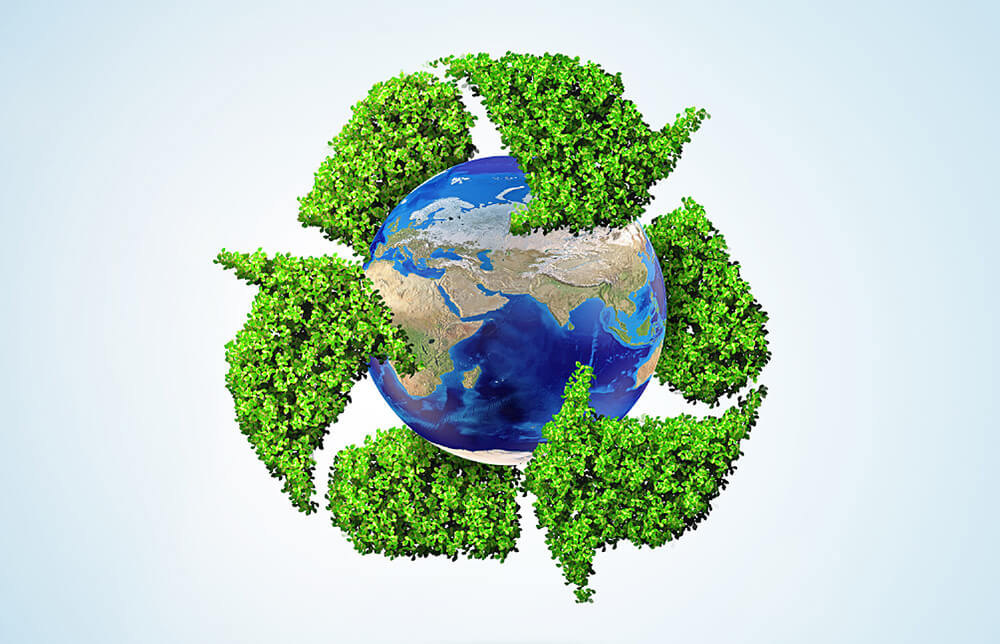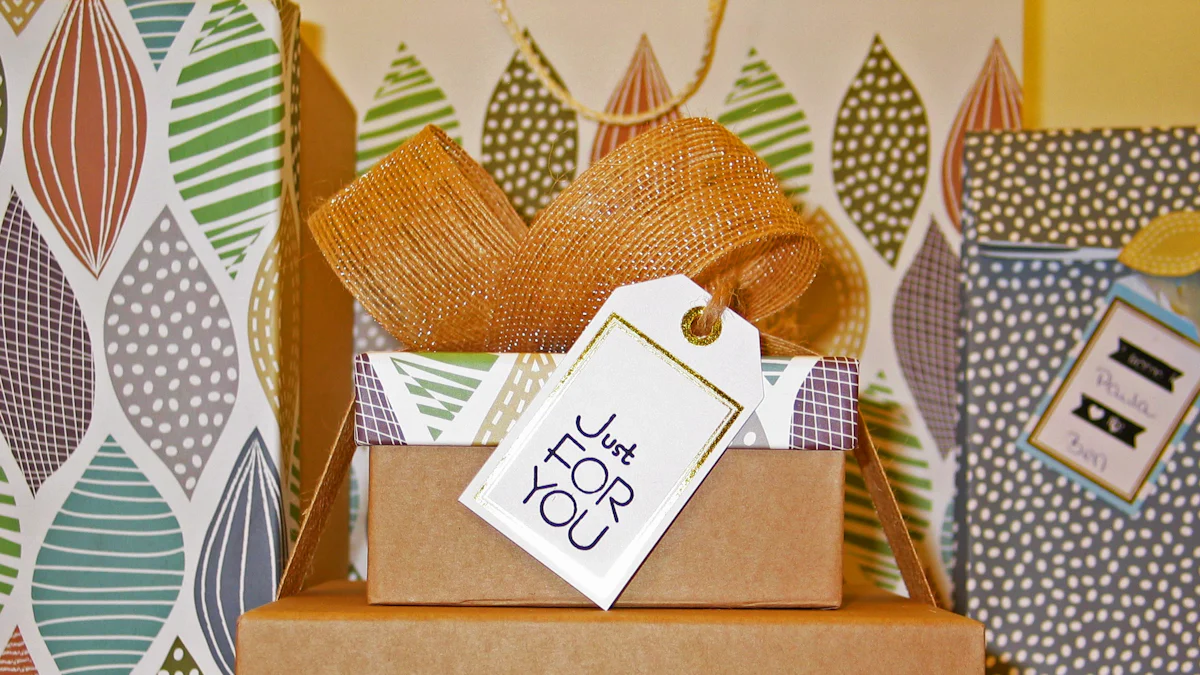
Paper box packaging offers a sustainable solution for modern needs. Businesses increasingly recognize its role in eco-friendly practices. The material's biodegradability and recyclability make it an attractive choice. Companies leverage Various uses and creative designs of carton packaging to enhance both functionality and aesthetics. This approach supports environmental goals and reduces reliance on non-renewable resources. The shift towards paper box packaging reflects a broader commitment to sustainability.
Environmental Advantages of Paper Box Packaging

Reduction in Carbon Footprint
Use of Renewable Resources
Paper box packaging utilizes renewable resources. Trees, as the primary source, grow back after harvesting. Sustainable forestry practices ensure continuous supply. This approach reduces reliance on non-renewable materials. The use of renewable resources contributes to a lower carbon footprint.
Lower Energy Consumption in Production
The production process for paper boxes requires less energy. Manufacturers often use recycled materials. Recycling consumes less energy compared to producing new materials. This energy efficiency reduces greenhouse gas emissions. Lower energy consumption supports environmental sustainability.
Biodegradability and Recycling
Natural Decomposition Process
Paper boxes decompose naturally. Microorganisms break down the material. This process returns nutrients to the soil. Natural decomposition minimizes landfill waste. Biodegradability makes paper boxes an eco-friendly option.
High Recycling Rates and Practices
Recycling rates for paper boxes remain high. Many facilities accept paper products for recycling. Recycled paper reduces the need for virgin materials. This practice conserves natural resources. High recycling rates enhance sustainability efforts.
Minimal Waste Generation
Efficient Design and Production
Efficient design minimizes material usage. Manufacturers optimize box dimensions. This approach reduces excess waste. Efficient production processes further decrease waste. Minimal waste generation benefits the environment.
Reusability and Repurposing
Paper boxes offer reusability. Consumers can repurpose boxes for storage. Businesses can reuse boxes for shipping. Reusability extends the life cycle of the product. Repurposing reduces the demand for new materials.
Sustainability Aspects of Paper Box Packaging
Sustainable Sourcing
Responsible Forestry Practices
Responsible forestry practices ensure the sustainability of paper box packaging. Forest management prioritizes the health and growth of trees. Harvesting occurs in a controlled manner to maintain ecological balance. These practices support biodiversity and protect wildlife habitats. Sustainable forestry contributes to the long-term availability of raw materials.
Certification and Standards
Certification and standards play a crucial role in sustainable sourcing. Organizations like the Forest Stewardship Council (FSC) set guidelines for responsible forestry. Certified products guarantee adherence to environmental and social criteria. Consumers can trust certified paper boxes as eco-friendly choices. Certification promotes transparency and accountability in the supply chain.
Lifecycle Assessment
Environmental Impact Analysis
Environmental impact analysis evaluates the effects of paper box production. The assessment considers factors like energy use and emissions. Companies identify areas for improvement through this analysis. Reducing negative impacts becomes a priority for manufacturers. Environmental impact analysis guides sustainable decision-making.
Continuous Improvement Strategies
Continuous improvement strategies enhance the sustainability of paper packaging. Manufacturers implement changes based on lifecycle assessments. Innovations reduce waste and improve resource efficiency. Ongoing efforts lead to better environmental performance. Continuous improvement supports the goal of sustainable packaging solutions.
Innovations in Paper Packaging
Technological Advancements
Technological advancements drive innovation in paper packaging. New machinery increases production efficiency. Advanced techniques improve the strength and durability of paper boxes. Technology enables the creation of lightweight yet sturdy packaging. These advancements contribute to the sustainability of paper box packaging.
Eco-friendly Coatings and Additives
Eco-friendly coatings and additives enhance the functionality of paper boxes. Water-based coatings replace harmful chemicals. Additives improve moisture resistance and extend product life. These innovations maintain the recyclability of paper packaging. Eco-friendly solutions align with the principles of sustainability.
Various uses and creative designs of carton packaging

Versatile Applications
Carton packaging serves multiple industries. Retailers use cartons for product display. Food companies rely on cartons for safe transport. Electronics manufacturers choose cartons for protective packaging. Cartons offer flexibility in size and shape. Businesses benefit from the adaptability of carton packaging.
Creative Design Solutions
Innovative designs enhance carton packaging. Designers create eye-catching graphics. Unique shapes attract consumer attention. Custom printing adds brand value. Creative solutions improve functionality. Carton packaging evolves with market trends.
Challenges and Future Outlook
Addressing Limitations
Overcoming Durability Issues
Paper box packaging faces challenges in durability. Moisture can weaken paper fibers. Manufacturers need to enhance water resistance. Reinforced materials can increase strength. Improved coatings can protect against damage. Solutions must maintain recyclability.
Cost-effectiveness in Comparison to Alternatives
Cost remains a concern for paper box packaging. Production expenses can exceed those of plastic. Efficient manufacturing processes can reduce costs. Bulk production can offer economies of scale. Competitive pricing can attract more businesses. Cost-effectiveness can drive wider adoption.
Future Trends
Emerging Technologies
Emerging technologies promise advancements in paper packaging. Smart packaging can offer interactive features. Sensors can monitor product conditions. Digital printing can enable customization. Innovations can improve user experience. Technology can transform packaging solutions.
Policy and Regulation Developments
Policy changes can influence paper packaging trends. Governments can impose stricter environmental regulations. Incentives can encourage sustainable practices. Standards can ensure product quality. Compliance can become a competitive advantage. Regulatory developments can shape industry dynamics.
Paper box packaging offers significant environmental and sustainability benefits. Renewable resources and efficient production processes contribute to a reduced carbon footprint. High recycling rates and biodegradability minimize waste impact. Paper box packaging plays a crucial role in a sustainable future. Businesses can enhance eco-friendly practices by adopting innovative solutions. Embracing these advancements supports environmental goals and promotes responsible consumption.










 中文
中文






 BOLLETTINO
BOLLETTINO

